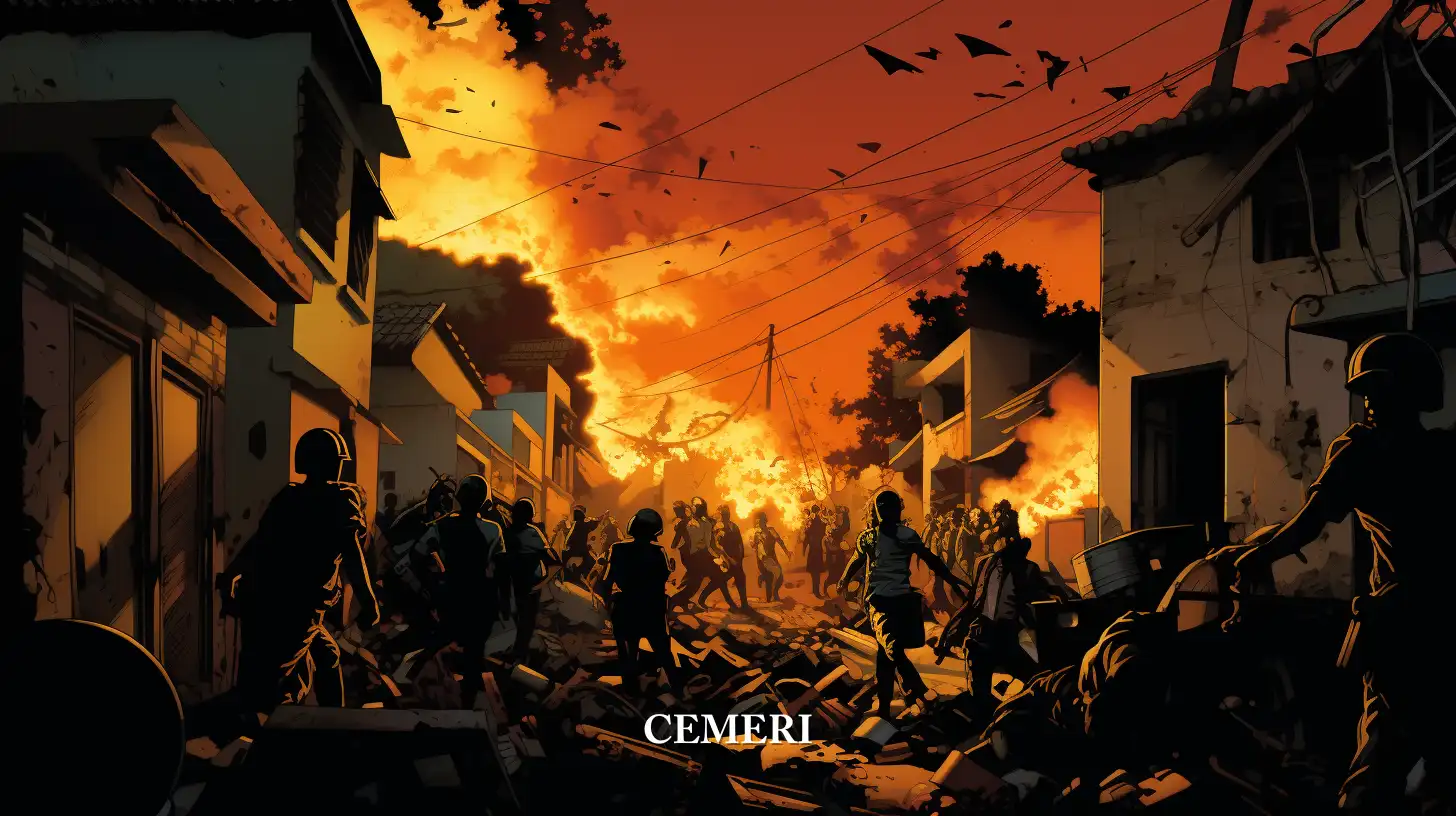Analysis
Andrea Jocelyn Mora Méndez
International indifference to the crisis facing Haiti
- Unlike the international attention that the social uprisings in Chile and Colombia received, Haiti has been left out of international political interest.

For more than a year Haiti has been facing a social and political crisis that to date has not been resolved. Poverty levels have increased, the political situation is out of control, the homicide rate continues to rise, and the human rights of all its inhabitants have been violated. Likewise, the wave of violence has caused the flight of thousands of people as a result of the organized gangs that control the country.
However, unlike the international attention that the social revolts in Chile and Colombia received, the Caribbean country has been left out of international political interest; the situations that are tried to be solved do not occupy the headlines unlike other social problems. Haiti seems to be forgotten and isolated from the world, a situation that leaves Haitian society in an obvious vulnerability.
Last July was one of the most violent months in the country's capital. Port-au-Prince came under the control of the armed groups; today the port is a battlefield. Cité Soleil has been the most affected municipality, leaving thousands of Haitians homeless, sheltering in shelters. Some social organizations estimate that close to 60% of the city is controlled by the aforementioned criminal gangs, of which six can be highlighted (BBC, 2022):
-Chen Mechan;
- 400 Mawozo;
- Great Ravinn; -G9;
- 5 seconds
- G-Pep.
According to the information provided by the Organization of the United Nations (UN), only between July 7 and 8 of this year about 471 people were murdered. On the other hand, there have been several cases of sexual abuse of women and girls. This has caused at least 3,000 people to start migrating. (UN, 2022).
After the earthquake, greater uncertainty
Added to the economic crisis, Haiti suffered an earthquake in [August 2021](https://www.economist.com/united-states/2022/09/03/joe-biden-goes-all-in-against-trump -and-maga-republicans), which, with a scale of 7.2 degrees, left a large number of dead, injured and thousands more homeless who continue to live today in an unprecedented health risk. In various parts of the country, people have been unable to rebuild their homes and continue to crowd into makeshift camps while waiting for state assistance.
Juan-Martin Bauer, representative of the UN World Food Program (WFP) in Haiti, warns about the danger of famine in the country (WPF, 2022). On the other hand, to this health and food crisis, the problems due to the shortage of fuel are added. That is why in recent months Haitian society has organized to protest and demand greater security within their neighborhoods. The demands leading the protests are mainly the return of peace and security in the cities. (The Country, 2022).
Faced with international oblivion
Despite all the mobilizations that have taken place in the country, the national and international authorities have not given a clear answer. As Haiti plunges into an unparalleled social and political crisis, the attention devoted to this issue is precarious; there are no emergency plans and there are no real programs that aim to control the situation. (Save the children, 2021)
On the other hand, it is pertinent to point out that much of the aid that was sent after the 2019 earthquake did not reach the victims and was lost in an abyss of corruption. Although on August 5, the UN designated 5 million dollars (USD) to address the humanitarian crisis, the amount is insufficient (El caribe, 2022). Likewise, through a racist and xenophobic policy, the Dominican Republic is actively working on the construction of a border wall, similar to Donald Trump's strategy, to stop and "control" Haitian migration (DW, 2022).
Based on the foregoing, it can be concluded that international society has been overwhelmed by the constant crises facing the Caribbean country. Despite the efforts to give visibility to the problem, the limitations that international organizations have to face such a serious situation, has resulted in the loss of human lives and even the basic fundamental rights of the Haitian community.
Sources
Estado Mayor de la Defensa. (2020). LAS FUERZAS ARMADAS APOYARÁN A LA GUARDIA CIVIL EN LA OPERACIÓN ‘INDALO’. Recuperado de: https://emad.defensa.gob.es/prensa/noticias/2020/06/listado/200611-firma-protocolo-Indalo.html
Eurostat. (2022). Annual asylum statistics. Recuperado de: https://ec.europa.eu/eurostat/statistics-explained/index.php?title=Annual_asylum_statistics
Eurostat. (2022). Migration and migrant population statistics. Recuperado de: https://ec.europa.eu/eurostat/statistics-explained/index.php?title=Migration_and_migrant_population_statistics#:~:text=1.9%20million%20immigrants%20entered%20the,almost%2030%25%20compared%20with%202019.&text=23.7%20million%20people%20(5.3%25),2021%20were%20non%2DEU%20citizens.

